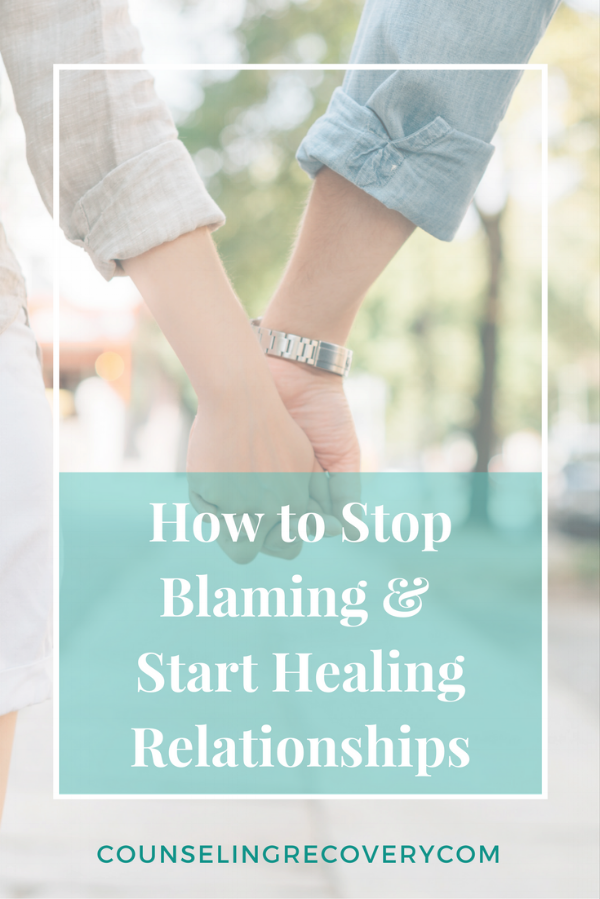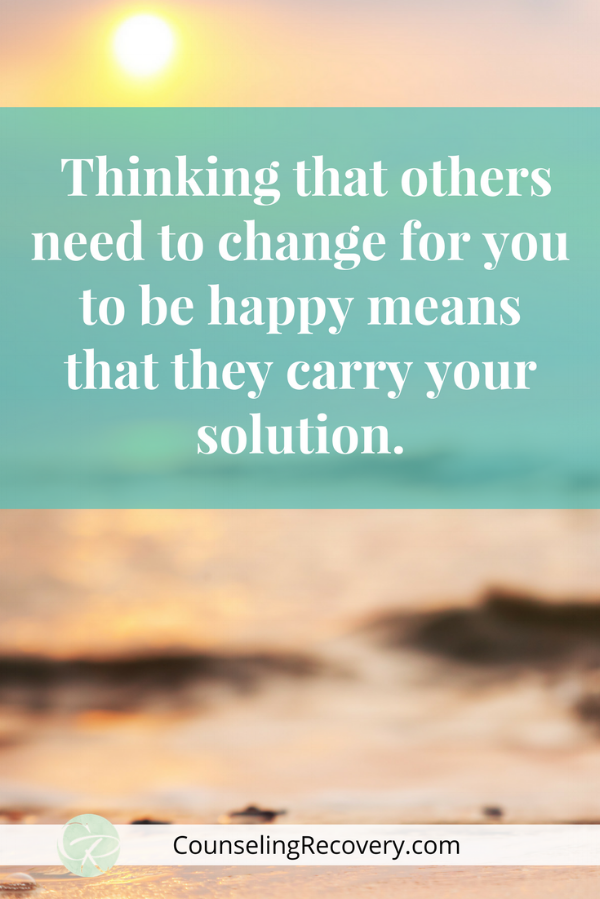How To Stop Blaming & Start Healing Relationships
How to Stop Blaming and Heal Relationships
"If only other people would change my life would be great" is something I hear a lot in my practice.
Whether it's wanting your partner to stop drinking or to treat you better, it's easy to fall into blame. Thinking that others need to change for you to be happy means that they carry your solution.
Blaming others for your unhappiness gives them all the power.
In relationships, blaming binds us together in a negative way, like gossip. You don't have to look at what you said or did. You get to be right.
No one wants to admit fault. Saying I'm sorry is often seen as looking bad or weak. In relationships, this lack of accountability causes most arguments. When the one person avoids taking responsibility the fight begins.
Accountability is the most powerful tool you have because it repairs the hurt in a way that nothing else does.
The Origins of Blame
Some of us were taught as children to blame. If no one ever apologized in your home, how could you learn its value?
When the blame game becomes the norm, you might avoid anything that could be seen as confrontational. Admitting fault often triggers abuse or being shamed in dysfunctional families.
As a result, you may have learned to be quiet or tell a joke to lighten the mood. Feelings get stuffed because you weren't taught what to do with them. You may secretly resent or blame others for your struggles.
How Blame Creates Unhealthy Communication
Blame causes the other person to feel attacked. It starts with a “you message” that makes the other person wrong. A “you message” starts by focusing on what the other person did wrong, rather than sharing concerns.
Leading the conversation with a “you message” is a sure fire way to spark a negative reaction!
These kind of messages imply a lack of accountability that causes problems. By not owning your behavior, your partner may feel devalued - like they are the one at fault.
Continuous blaming makes the other person question their reality and that damages self-esteem. This is how most relationships start to fall apart.
How to Take Your Power Back
Taking responsibility for your own actions stops the cycle of blame. This doesn't make you a doormat, it makes you a healthy, accountable partner. It is the people who take responsibility for their behavior that have the ability to create healthy, happy relationships.
Giving up blame means addressing old beliefs that create a win/lose scenario. Resolution happens when we try to understand each other, not to dominate or passively agree with the other person.
Here are some helpful tips for minimizing blame.
Challenge old beliefs that reinforce a win/lose strategy.
Remember, showing accountability sets a positive example for kids.
Check your thoughts; are they negative, critical or focused on being right?
Are you expecting someone to be different than who they really are?
Express yourself clearly by using “I statements” to avoid blame.
Acknowledge specific behavior rather than saying "I'm sorry."
Final Thoughts
By setting a healthy example, others may follow - especially when you keep the focus on your own behavior. No one likes to be told what to do so by expressing your concerns without blame, you can change improve communication. It’s much harder to blame when you’re the only one doing it!
Be the person who models these changes and your relationships will reap the rewards!
Get free relationship tips plus my checklists to help you figure out what’s working and what needs your attention.


